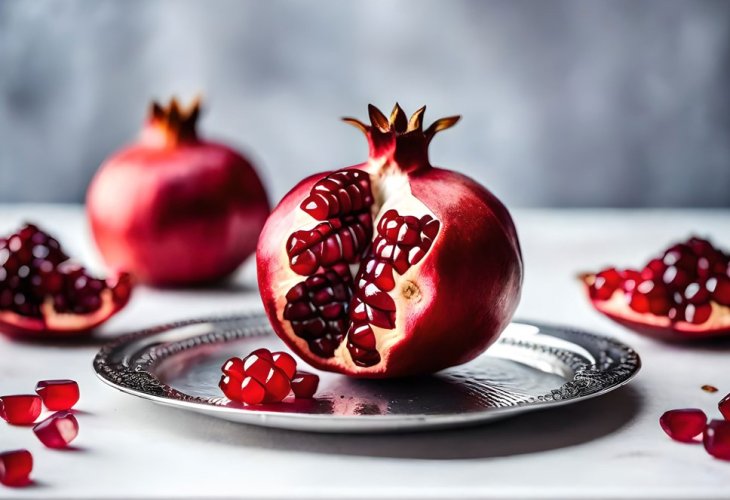Jewish Holidays & Festivals
The Pomegranate: A Rosh Hashanah Symbol Full of Meaning
With its vibrant color, sweet taste, and deep meaning, the pomegranate is a highlight of Rosh Hashanah

One of the most colorful and beloved fruits on the Rosh Hashanah table is the pomegranate. With its crown-shaped top and rich red color, it stands out in both beauty and meaning. Maimonides once described the pomegranate as having “wonderful properties,” and it’s no wonder it’s full of health benefits, tradition, and spiritual symbolism.
Loaded with Goodness
Pomegranates are packed with vitamins A, C, E, and K, along with important minerals like potassium, calcium, iron, and magnesium. They’re especially good for heart health, helping to lower bad cholesterol, raise good cholesterol, and improve blood flow.
So Many Ways to Enjoy It
You can eat pomegranate seeds fresh, squeeze them into juice, or use them in salads and other dishes. However you enjoy it, it adds both flavor and beauty.
A Fruit of Blessing
The pomegranate is one of the Seven Species mentioned in the Torah as special to the Land of Israel. It grows on a small tree or bush that blossoms in spring and ripens in the fall. It grows best in Mediterranean countries like Israel, Spain, Italy, Turkey, and Greece.
Proudly Grown in Israel
Israel is one of the world’s leading growers of pomegranates. About 90% stay in the country, while the rest are shipped to Europe.
A Fruit with Deep Roots
The first time we hear about pomegranates in the Torah is in the Book of Genesis, where the Land of Israel is described as being blessed with this fruit. Its shape, with a crown on top, and its many seeds have made it a symbol of abundance and blessing. That’s why it’s part of the traditional Rosh Hashanah “signs.”
As we eat it, we say:
“May it be Your will, Hashem, our God and the God of our fathers, that our merits increase like the seeds of a pomegranate.”
Amen!

